A year ago, Luz* and her two children were just arriving in Florencia, Colombia, a city on the edge of the Amazon. They were newly displaced after facing violence and disappearances in their family. Luz needed help to start a new life, including basic supplies, shelter, and a new job.
Displacement stories like these are not uncommon in Florencia, which is experiencing a surge of displaced people fleeing violence in other departments in the country.
It is Luz’s quick transformation from in-need to in business that is new to Colombia’s displacement trends.
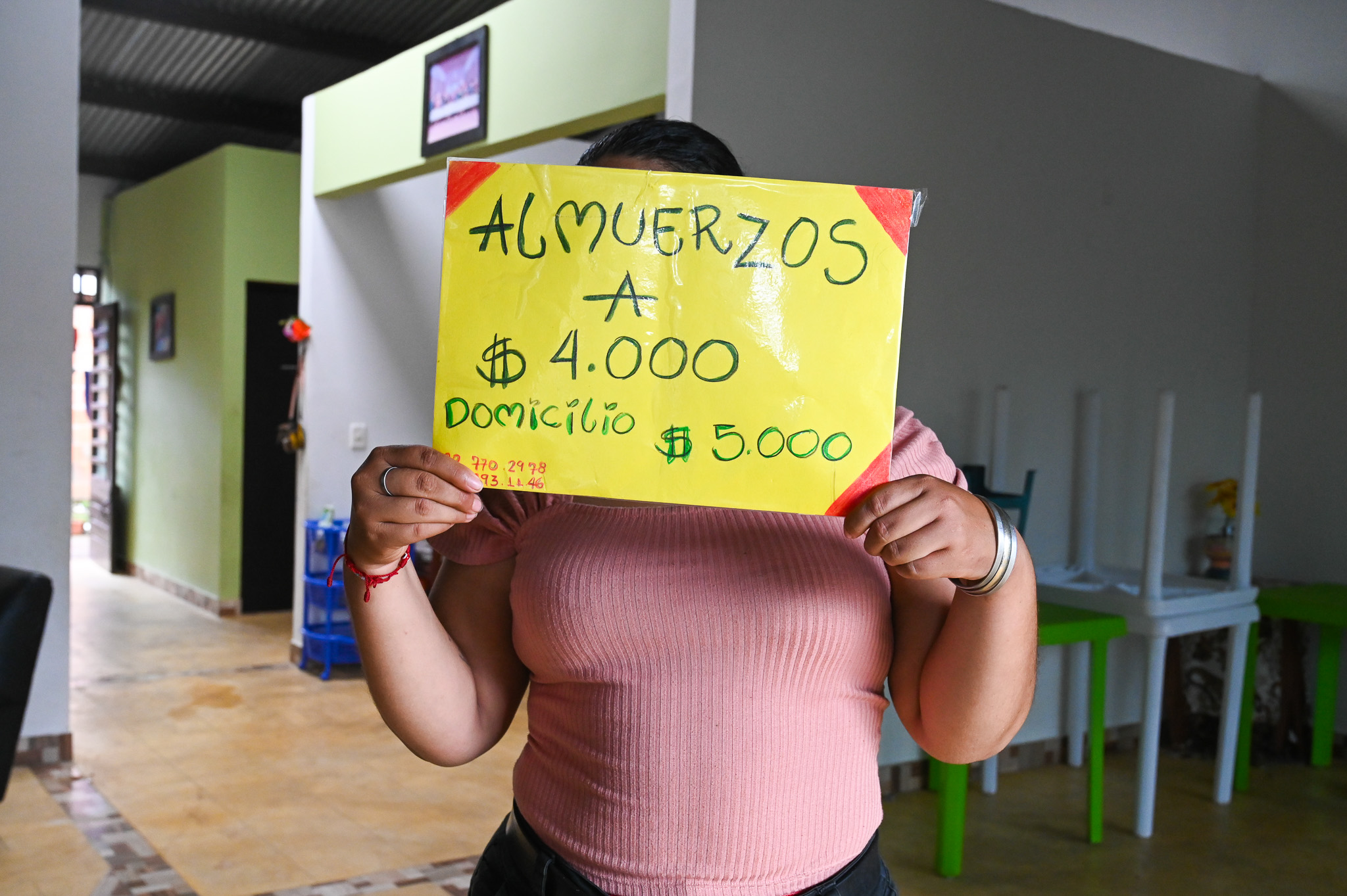
Luz runs a fast-food restaurant in her home, which she started while receiving rental support through the Closing Gaps program.
Within six months of arriving in Florencia, she and her sister had a growing business and were already back on their feet. After receiving assistance from Blumont, Luz now supports her family by running a fast-food restaurant and delivery service, serving dozens of customers daily.
Responding to displacement in Colombia
More than 500,000 people were displaced internally across Colombia over the past two years, seeking protection from internal conflict. Cities of all sizes are seeing increased arrivals, but mid-sized cities are struggling to handle the influx without support from government agencies or NGOs. As families settle in urban areas, not in camps like in other migration crises, the need for aid adds up quickly. The cities we work in–Florencia, Sincelejo, Cucuta, and Popayan–see up to 1,000 new arrivals per month.
With so many displaced people arriving, our Closing Gaps program (funded by USAID’s Bureau for Humanitarian Assistance) is working alongside the Colombian government’s Victims Unit agency to respond rapidly to needs in mid-sized cities. We’re directing our services to respond to displacements as soon as possible, within 72 hours of arrival.
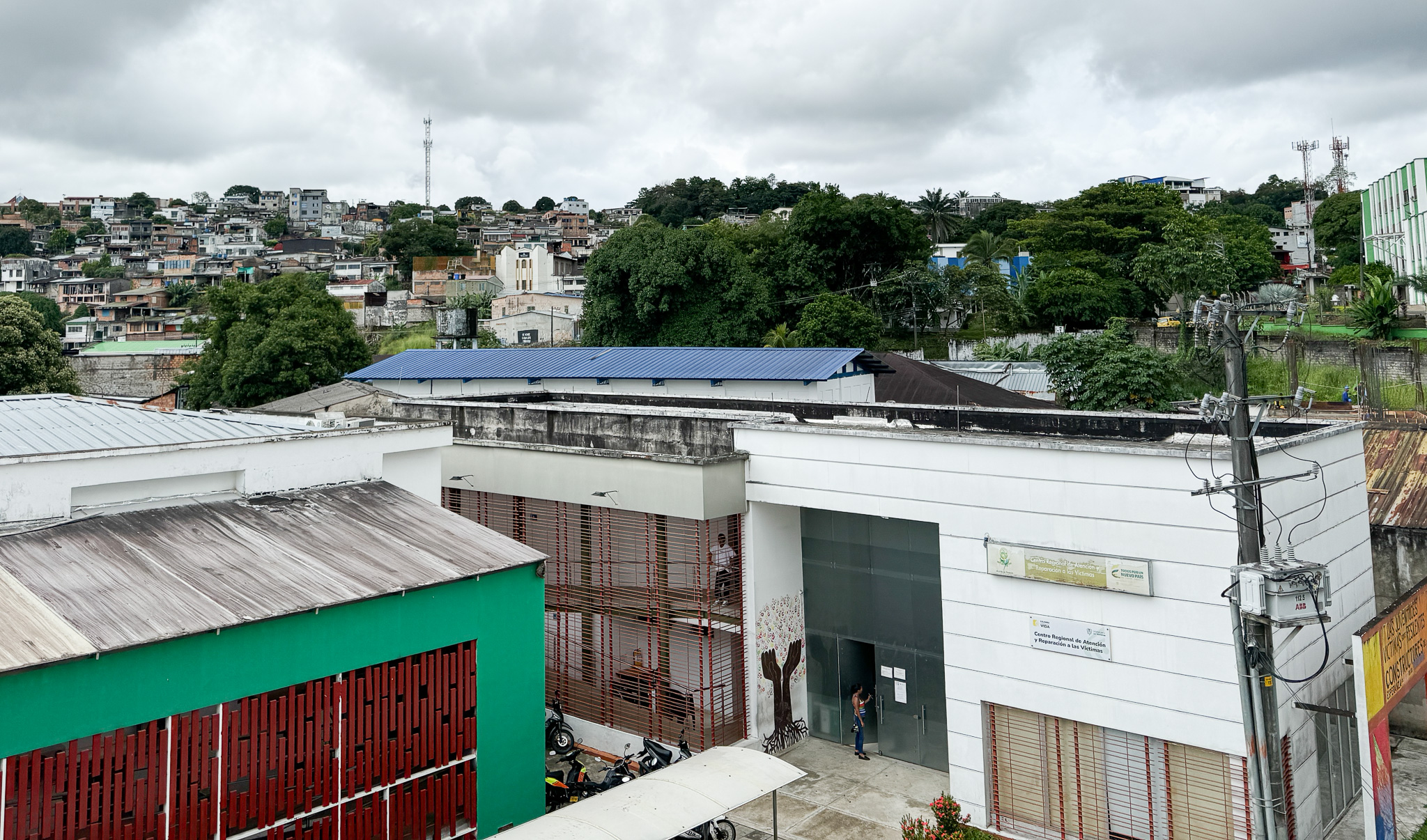
The Regional Victims Center in Florencia serves hundreds of displaced families a month, connecting them to local services. Blumont is embedded in the center to help intake new arrivals.
Our team has an integrated approach to assist each family: registering them as displaced persons, conducting emergency psychosocial evaluations, evaluating children and pregnant women for medical needs, enrolling children in schools, and giving out two weeks of food and hygiene supplies.
Uplifting women-led households through rental support
Our response also includes providing rental support, which has been a part of our Acogida program that supports Venezuelan migrants for three years, and now has become integral to the Closing Gaps program.
During our assessment of newly displaced families, our team identifies those in dire need of better shelter and offers them rental support. The rental support initiative is designed to protect women-led households, who often arrive with children and other dependents. Many have no choice but to live in unsafe, overcrowded housing that puts their families at risk. Rental support gives them the opportunity to live in a better place with a formal rent contract.
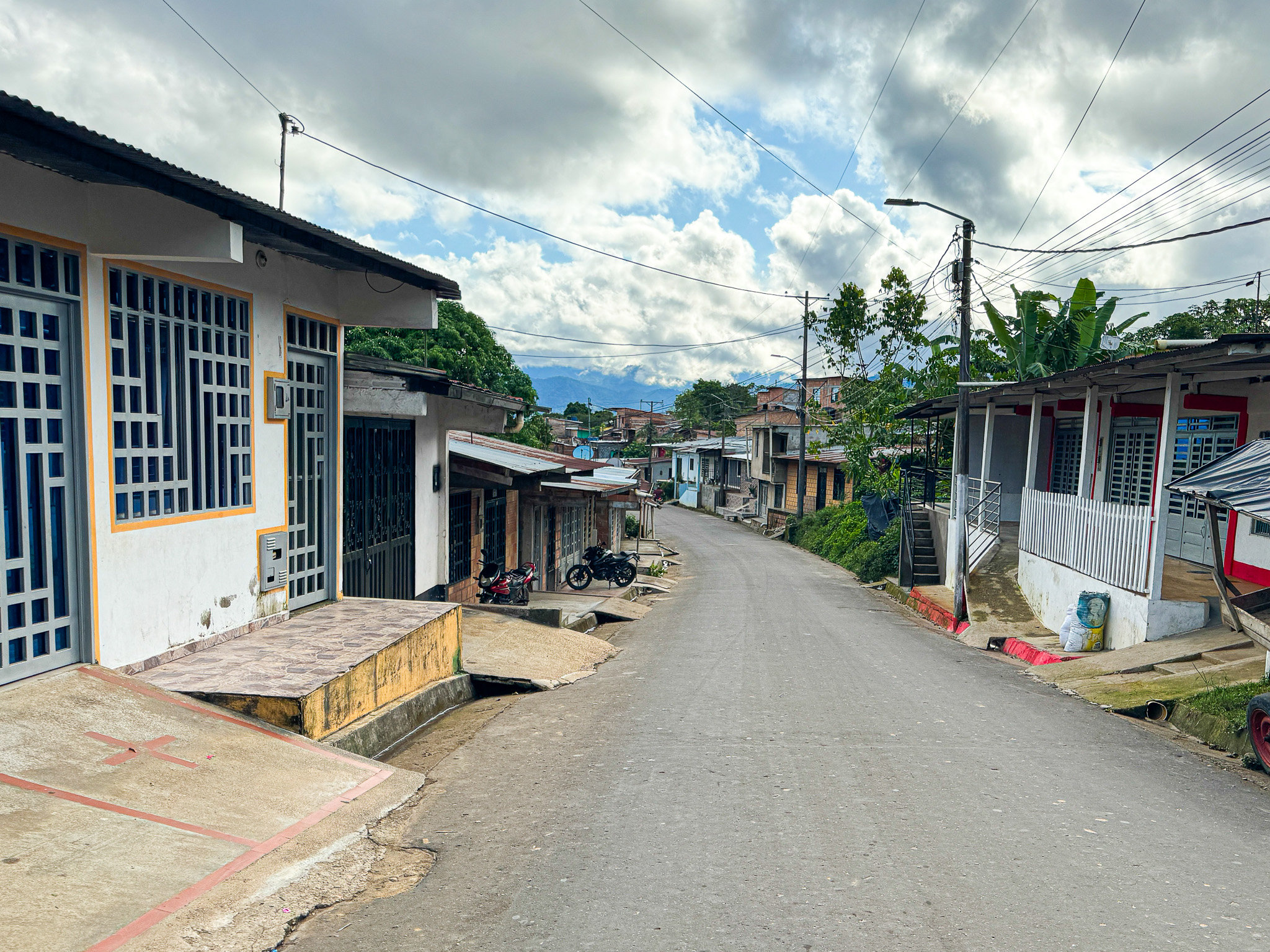
Blumont facilitates and pays for the rental of safe housing for women-led households who have been internally displaced in Colombia through a rental support initiative.
Six months of rental support, as shown from the first full year of the program, is giving women the bandwidth to make important decisions and focus on their future, rather than just fighting to get by every day.
The women’s decisions and priorities while receiving support were entrepreneurial, business-oriented, and forward-thinking. Each saw the chance they were given to make a major change in their life while rent was being paid for.
Fostering stability and opportunity
Luz was part of the first cohort of rental support recipients in Florencia. She needed a way to support her family after experiencing so much uncertainty and pain. She wanted normalcy and comfort for her kids. With six months of rent covered, Luz realized she could invest in her future by opening a business.
The idea for her fast-food business came while working long shifts at a store. Luz noticed how expensive it was to buy lunch every day. She thought about how many other people in her situation were losing out on daily wages because of lunch.
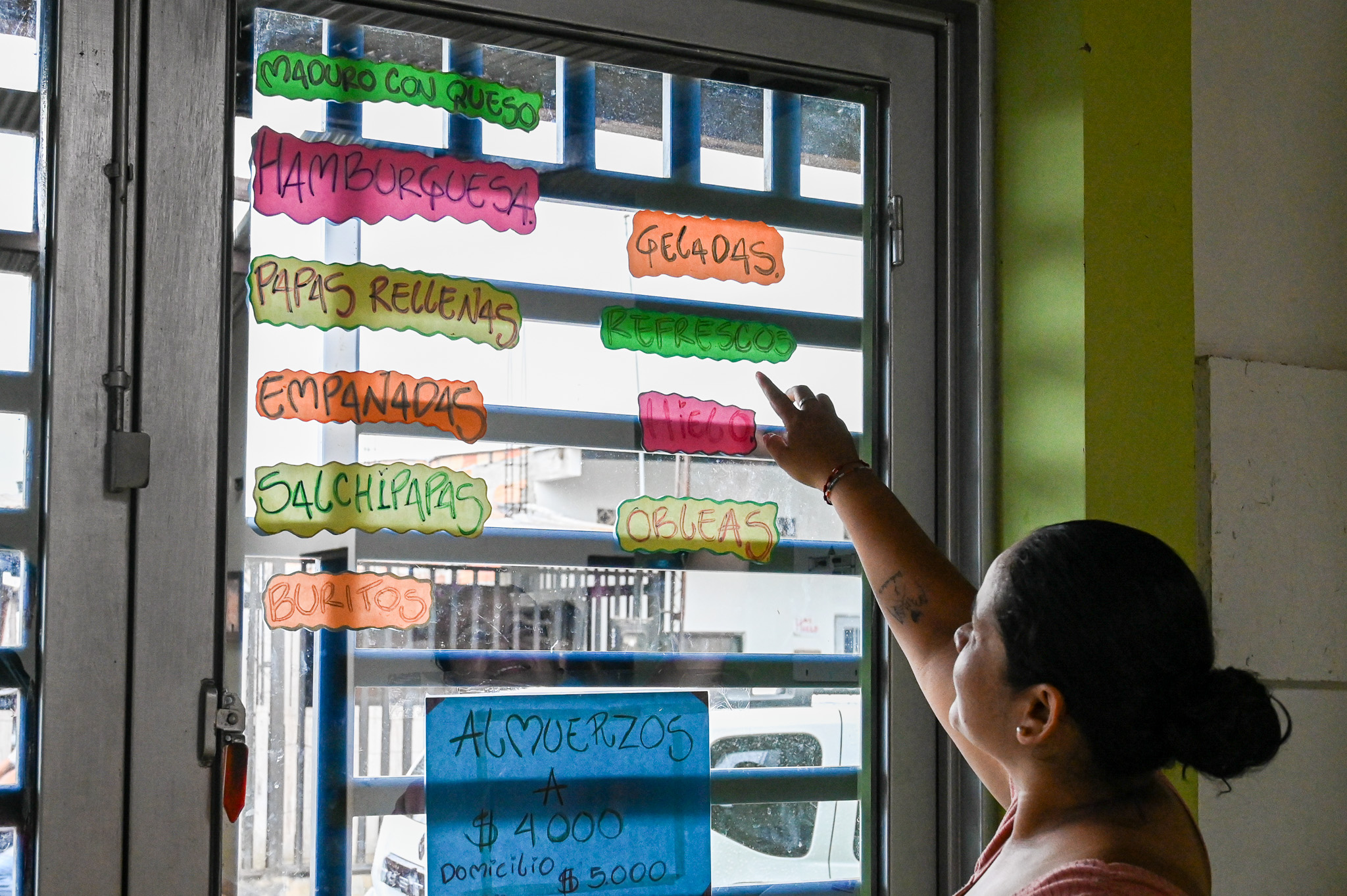
Luz and her sister (not pictured) cook dozens of lunches a day, serving them both in Luz’s house and as delivery meals. Luz posted her latest menu on her front window for customers to see.
Soon, she and her sister were selling lunches out of her home. They advertised their affordable meals everywhere: on social media, flyers, and even the front window of Luz’s house, where she put up a menu.
With the money she saved through the rental support program, Luz bought a motorbike to make deliveries. After several months, she moved into a larger house to expand her kitchen and serve customers in her living room. All of this was possible because she was able to invest not only her money, but also her time and energy in her future, rather than working just to pay rent and worry about her family’s safety. Rental support has brought her “tranquilidad,” or the peace of mind that she didn’t have when she first came to Florencia.
Luz said her goal is to give back to the community. She knew what it meant to struggle. Selling affordable meals to others so they can maximize their daily pay is a way for her help the community that welcomed her.
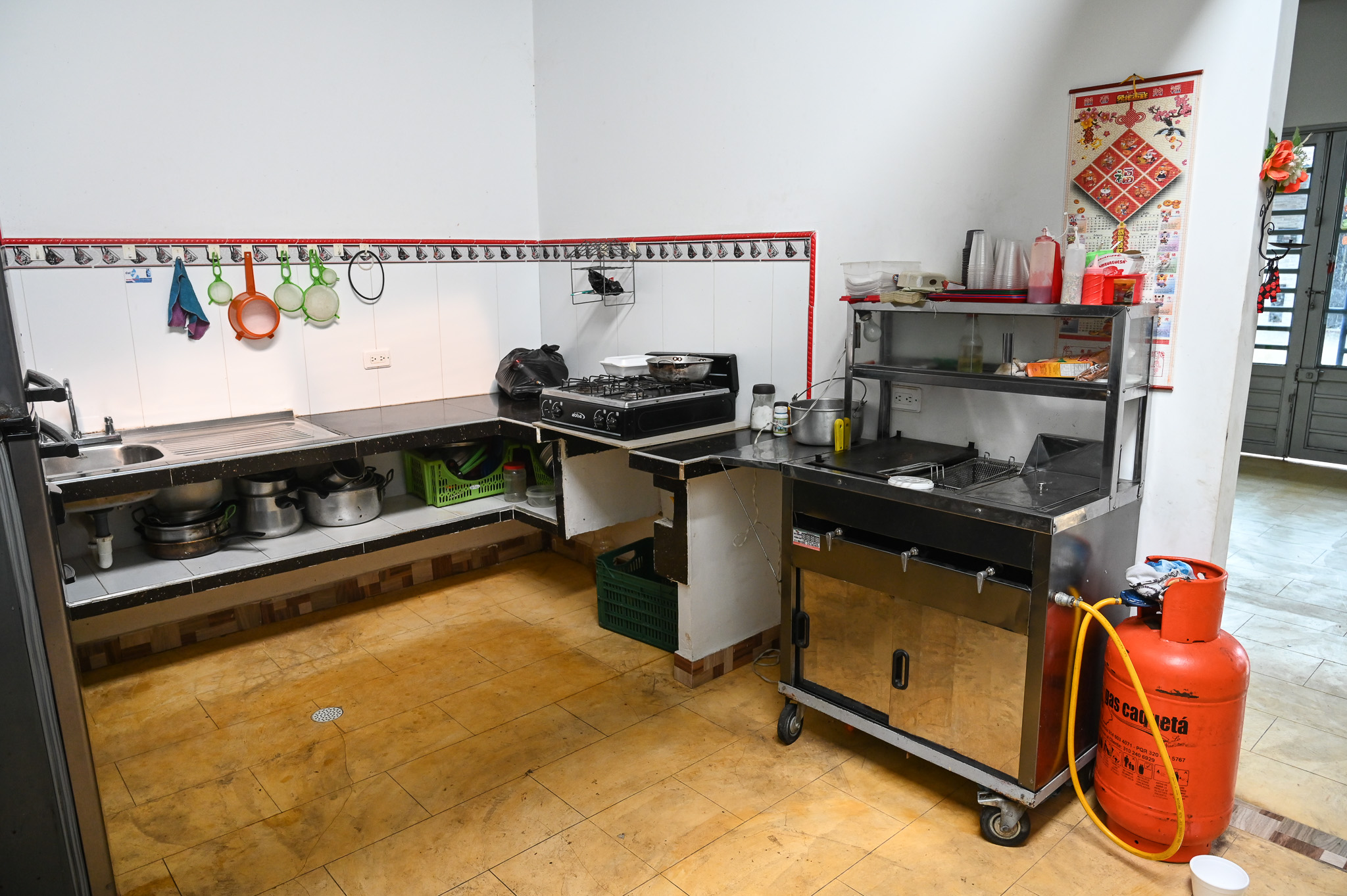
Luz was able to move into a larger home after the rental support ended using her savings during the program and earnings from the fast-food business. Her new house has a larger kitchen for cooking and an open living room to accommodate customers.
“I received a great blessing, and that blessing does not have to be extinguished,” she said. “In other words, I know that I received help, so I didn’t have to suffer anymore. I am going to provide for other people as well. That is why.”
Luz, like the other women supported by the Closing Gaps program, are their own agents of change. They have taken assistance and turned it into an opportunity. They’re transforming financial stability and peace of mind into a pathway for a better future.
*Name changed for privacy.



